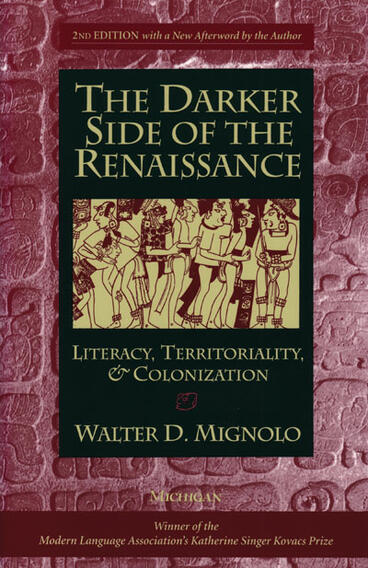The Darker Side of the Renaissance
Literacy, Territoriality, & Colonization, 2nd Edition
An exploration of the role of the book, the map, and the European concept of literacy in the conquest of the New World
Description
The Darker Side of the Renaissance weaves together literature, semiotics, history, historiography, cartography, and cultural theory to examine the role of language in the colonization of the New World. Exploring the many connections among writing, social organization, and political control, including how alphabetic writing is linked with the exercise of power, Walter D. Mignolo claims that European forms of literacy were at the heart of New World colonization. It has long been acknowledged that Amerindians were at a disadvantage in facing European invaders because native cultures did not employ the same kind of texts (hence "knowledge") that the Europeans valued. Yet no one but Mignolo has so thoroughly examined either the process or the implications of conquest and destruction through language. The book continues to challenge commonplace understandings of New World history and to stimulate new colonial and postcolonial scholarship.
Walter D. Mignolo is Professor in the Department of Romance Studies and the Program in Literature, Duke University.
Walter D. Mignolo is William H. Wannamaker Professor of Literature, Cultural Anthropology and Romance Studies and Director of the Center for Global Studies and the Humanities at Duke University.

